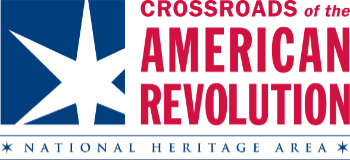Biography People
Dr. John Cochran Full Biography
I was born in 1730 to Scotch Irish parents living in Sadsbury, Chester County, Pennsylvania. My classical education began at age 13 at a nearby school opened by Rev. Francis Allison, and later I was apprenticed to Dr. Robert Thompson in Lancaster to begin my medical training. I greatly expanded my medical knowledge between 1755 and 1760 while serving as a surgeon’s mate during the French and Indian War where I saw many terrible wounds and illnesses. I became acquainted with the wealthy Schuyler family when I served with Major Philip Schuyler in New York State (he was a general in the Revolution). At the age of 34, on December 4, 1760, I married Gertrude Schuyler, the widowed sister of Philip, who was six years older than me and the mother of two children. By May 1763 we were living in New Brunswick, New Jersey where I was an early advocate for improving and regulating the medical profession. I helped found the Medical Society of New Jersey, a professional organization for serious doctors, in 1766 and became its president in 1769.
Small-pox was a major threat to life and I became interested in the benefits of inoculation. In 1772 I advertised in several newspapers that I had “opened a very convenient house in a pleasant situation, near New Brunswick” where interested people could be inoculated. The advertisement encouraged people to undergo the inoculation process, although many feared it. I successfully inoculated several hundred people, including my two boys, both of whom recovered nicely.
I supported the protests against the acts of Parliament that we colonists felt reduced our rights as British citizens. In July 1776, I was one of several New Jersey doctors designated to receive old sheets and other old linen to be used to make lint and bandages for dressing and curing the wounds of our soldiers. I volunteered to serve without pay in the hospital department when the Continental Army was formed. When the British army pursued Washington’s army across New Jersey in November 1776, I sent Gertrude, with our sons and most important possessions, including my library, to my brother-in-law’s house near Philadelphia. Then, the first week of December I helped evacuate the patients in the army hospital at Trenton and went with them to Bethlehem, Pennsylvania.
Dr. Benjamin Rush, a signer of the Declaration of Independence, and I joined Washington’s army with the Pennsylvania militia at Crosswicks several days after Washington captured the Hessian garrison at Trenton on December 26, 1776. We were called to Trenton the night of January 1 and the next day treated the wounded at the second battle of Trenton. Washington had stationed his troops on a hill just across a creek at Trenton where he fought the British until darkness ended the day’s fighting. Dr. Rush and I, along with several young men we were teaching, treated about 20 wounded men at a makeshift hospital in a house near the battlefield. When we finally got some sleep it was on straw in the same room with some of our patients. About 4:00am on January 3, I awoke and stepped outside the house, only to find that our army had left. Dr. Rush and I got some wagons and put our patients in them and set off for Bordentown, expecting the army had retreated in that direction. When we heard gun fire from the direction of Princeton we realized that Washington had marched all night and surprised the British there. We headed for Princeton and near the town crossed the battlefield that still was red in many places with human blood.
The army medical services were not well organized at first and several men vied with each other to be in charge. On April 7, 1777, the Continental Congress approved a plan for reorganizing the army medical department that Dr. William Shippen and I had submitted on February 14. Under that plan I became Surgeon General for the Medical Department, on the recommendation of Washington, and served for three years. My work on small pox inoculations was important to Washington who decreed in January 1777 that all men in the Continental Army would be inoculated to prevent large numbers of deaths. I was promoted on January 17, 1781 to Director General of the Medical Department of the Continental Army, the top position, and served in that office until April 11, 1783. During my tenure I had to deal with many problems, including scarcity of medical supplies and the resignations of many medical officers, mostly because of anger about not being paid on time. However, unlike my predecessors, even fighting against all those difficulties, I was able to gain respect by the way I acted, with industry, sound judgment, and unfailing tact.
After the Revolution, I moved my family to New York City where President George Washington appointed me to be commissioner of loans in 1790. Later, I suffered a stroke and retired to Palatine, New York where I died in 1807.
FURTHER SOURCES
Arnold, James R., ed. Health under Fire: Medical Care During America’s Wars, Santa Barbara, CA: Greenwood, 2015.
Saffron, Morris H., Surgeon to Washington, Dr. John Cochran, 1730-1897, New York: Columbia University Press, 1977.
US Army Medical Department, Office of Medical History http://history.amedd.army.mil/surgeongenerals/J_Cochran.html
